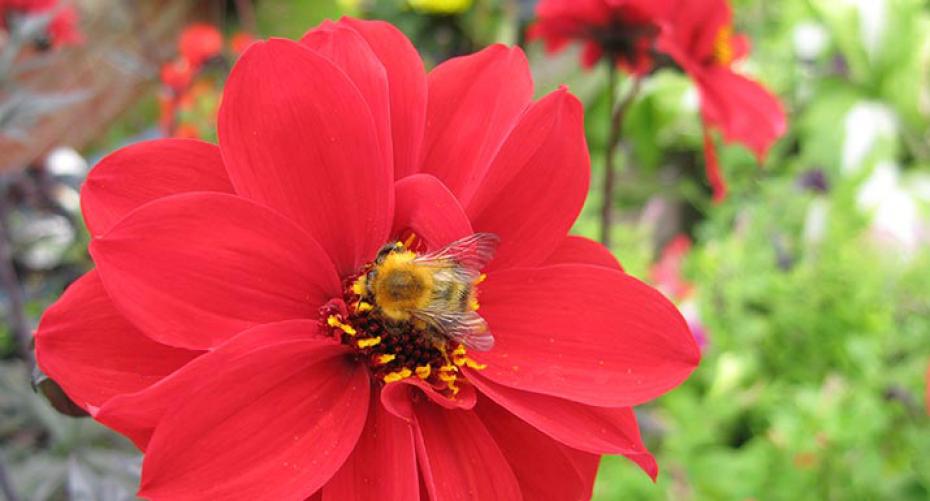Bee numbers are falling at an alarming rate and gardeners are being encouraged to help save these vital insects
Bees aren’t just busy little insects that buzz around our gardens; they also perform a vital role in the production of our staple foods. As they collect nectar and transfer pollen from flower to flower, they pollinate garden plants and wildflowers, such as bluebells and foxgloves, as well as essential crops like cereals, nuts, fruit and vegetables. Bees are responsible for pollinating over 70 of the 100 crop species that make up 90% of the world’s food. So we should be worried that the number of honey bees and bumblebees has declined significantly over the past few decades.
How can we help
 Bees have lost many of their flower-rich meadow habitats, but the UK has more than a million hectares of garden space, so we can all do our bit to increase the bee population. Bees love a wide range of native and more exotic flowers, so whatever your garden style, you can encourage them in with plants you love. Lavender, sage, aquilegias and lupins are bee friendly and are hardy and easy to grow. They also like fashionable alliums, gladioli and open-flowered single dahlias, such as ‘Bishop of Llandaff’. Bees are not keen on over-bred varieties with ruffled or double flowers that they can’t get into, or blooms that produce no pollen, such as most annual bedding plants. Different bee species prefer different flowers, and they forage for nectar in all seasons, so the Bumblebee Conservation Trust UK (www.bumblebeeconservation.org.uk) suggests you provide them with a wide variety of plants and flowers all year round. Where space is limited, bee-friendly blooms can go in pots and window boxes. Look out for specially labelled bee-friendly plants in our centre.
Bees have lost many of their flower-rich meadow habitats, but the UK has more than a million hectares of garden space, so we can all do our bit to increase the bee population. Bees love a wide range of native and more exotic flowers, so whatever your garden style, you can encourage them in with plants you love. Lavender, sage, aquilegias and lupins are bee friendly and are hardy and easy to grow. They also like fashionable alliums, gladioli and open-flowered single dahlias, such as ‘Bishop of Llandaff’. Bees are not keen on over-bred varieties with ruffled or double flowers that they can’t get into, or blooms that produce no pollen, such as most annual bedding plants. Different bee species prefer different flowers, and they forage for nectar in all seasons, so the Bumblebee Conservation Trust UK (www.bumblebeeconservation.org.uk) suggests you provide them with a wide variety of plants and flowers all year round. Where space is limited, bee-friendly blooms can go in pots and window boxes. Look out for specially labelled bee-friendly plants in our centre.
Year-round bee buffet
 Spring
Spring
Feed the bees and add colour to your garden with flowering quinces (Chaenomeles), hardy wallflowers (Erysimum) and flowering cherries.
Summer
Bees love lavender and it’s easy to grow. Also try hardy geraniums, hebes, scabious and single- flowered fuchsias at this time of year.
 Autumn
Autumn
Japanese anemones, hardy plumbago and sedums, such as ‘Purple Emperor’, will brighten up the garden and give bees an autumnal treat.
Winter
Keep up the bee buffet with hellebores, plus the deliciously-scented Mahonia and Sarcococca shrubs.


